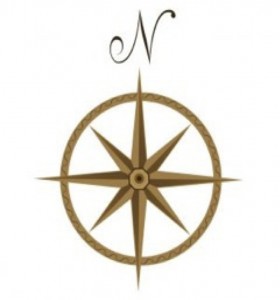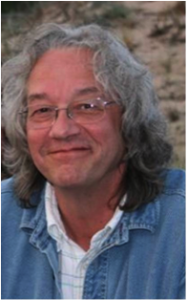Putting Wisdom to Work in the World
Inspiring Accountability in the Workplace
I began my teaching career in 1985 as a shop teacher. To this day I remain grateful for the everyday usefulness of the lessons I was taught by so many fine artists and artisans. The value of these early lessons came into play once again when a current student of mine held up a very interesting question: How do we inspire accountability in groups and organizations? As I purposively probed into the deeper layers of that question I realized the value of an appreciative consideration (inspiring) of an often negative or devaluing process (accountability). Issues of accountability are too often approached from an evaluative and prescriptive lens creating environments laced with suspicion and thick with conflict. From the perspective of Integral Leadership I opened myself up to a richer orientation and sought to learn more about this relational space. From that standpoint, being open to learning, it felt important to not center myself, and therefore my response, into that stream of potential conflict and blame, but to raise the question up for a higher and more thoughtful consideration.
A master plumber I once knew during my time as a shop teacher shared some practical wisdom with me that might just hold some value and a possible integral solution in addressing the question of inspiring accountability. His wisdom began with “pick the right tools for the job” and once selected take good care of them, “keep them clean and sharp”, remember to “never use force” as you will only end up with broken parts, bent tools and scrapped knuckles and finally, and perhaps most importantly, he simply said; “Look, nobody knows everything. If you need help, ask”. These simple pragmatic notions have proved themselves valuable to me as I have engaged in many and wide ranging leadership issues and dilemmas. They seem certain to hold value for inspiring accountability in the workplace.
Contained within this plumber’s advice were so many rich and fertile integral notions like the necessity of lifelong learning held by “pick the right tools for the job”. In addition it reveals the reality of multiple approaches to solving any problem. Yet the lesser skilled or inexperienced leader, the one who’s reach into the leadership tool bag is limited, may become satisfied with tired and scripted responses that often yield the illusion of effectiveness without producing meaningful and sustained change. Leaders who choose not to open themselves up to learn more about this relational space will likely become content with brandishing a single institutionalized approach as if it alone were the only way to approach people or problems. As Maslow lamented: “If the only tool you have is a hammer, you will see every problem as a nail”.
The integral leader would do well to learn of the assets of the organization in the form of the gifts of potential held by all that could be used by all in order to assemble a fuller tool box with more “right” tools at their reach. A side benefit of human resource asset mapping (the mapping of human potential) is that this activity alone will inspire accountability. This is largely a result of this activity engendering in others the feeling of belonging to something important. If we feel that we are contributing to overall health of the organization, that we are valuable, we are much more likely to put ourselves forward and be accountable for it. We do not inspire accountability by cultivating a feeling of being cutoff or cut down. Inspiring accountability begins with engendering a sense of trust that is inspired when I feel my voice matters—that I have something to contribute without encountering insult, humiliation or feeling diminished.
The next lesson from this master plumber spoke to the essence of self-renewal and good stewardship. You have to keep your tools “clean and sharp”. The greatest asset of any organization is its people. As leaders we must tend to the overall quality of our working environments. We must make sure that our environment is not becoming polluted with corruption, unfair practices, favoritism, gamesmanship or any other form of organizational poisoning. Make certain that as we are inspiring accountability that we are doing so with transparency. The lack of this clarity often leads to fear and misconception concerning accountability. The heavier propositions of manipulation, deception, intimidation, and coercion seem to find their way into the process as fear grows.
The heavy propositions are familiar to each of us differently and they account for almost all organizational dysfunctions. In some way they are all elements of force and as our plumber teaches; “never use force”. These heavy propositions are the part breakers, the tool benders, and the knuckle smashers. I do not believe we can inspire accountability in the workplace by way of employing the heavy propositions.
When we employ these tactics we may well see immediate results and as such take away a sense of effectiveness yet we pay an enormous price for their utility. Relationships built through this process are often fraught with positional tactics, gamesmanship, entrenchment, misinformation, defensiveness, and other behaviors and actions counter to productive and healthy leadership let alone to the notion of inspiring meaningful accountability.
Finally, we are left with the reality that we do not know everything. That is our plumber’s final and perhaps most important lesson—“if you need help, ask.” As we look to inspire accountability perhaps the central lesson we can take for his pragmatics is simply being open to learn, to being flexible in our approach and to constantly resist the urge to use force over thoughtfulness as we seek to inspire. To use deep listening, awareness, persuasion, insight, empathy, and respect in order to cultivate appreciative communication as way to “ask” others for help and in that way gain a greater sense of a community of practice and gain a sense of valued and inspired accountability.
About the Author
Mark L. McCaslin, Ph.D. is a professor at the Institute of Transpersonal Psychology. As a career educator, he has a rich history of teaching, educational programming, and administration. His personal and professional interests flow around the development of philosophies, principles, and practices dedicated to the full actualization of human potential. The focus of his research has centered upon organizational leadership and educational approaches that foster a more holistic approach towards the fulfillment of that potential. At the apex of his current teaching, writing, and research is the emergence of Potentiating Leadership and The Potentiating Arts™. potentiatingarts@gmail.com mmccaslin@itp.edu


